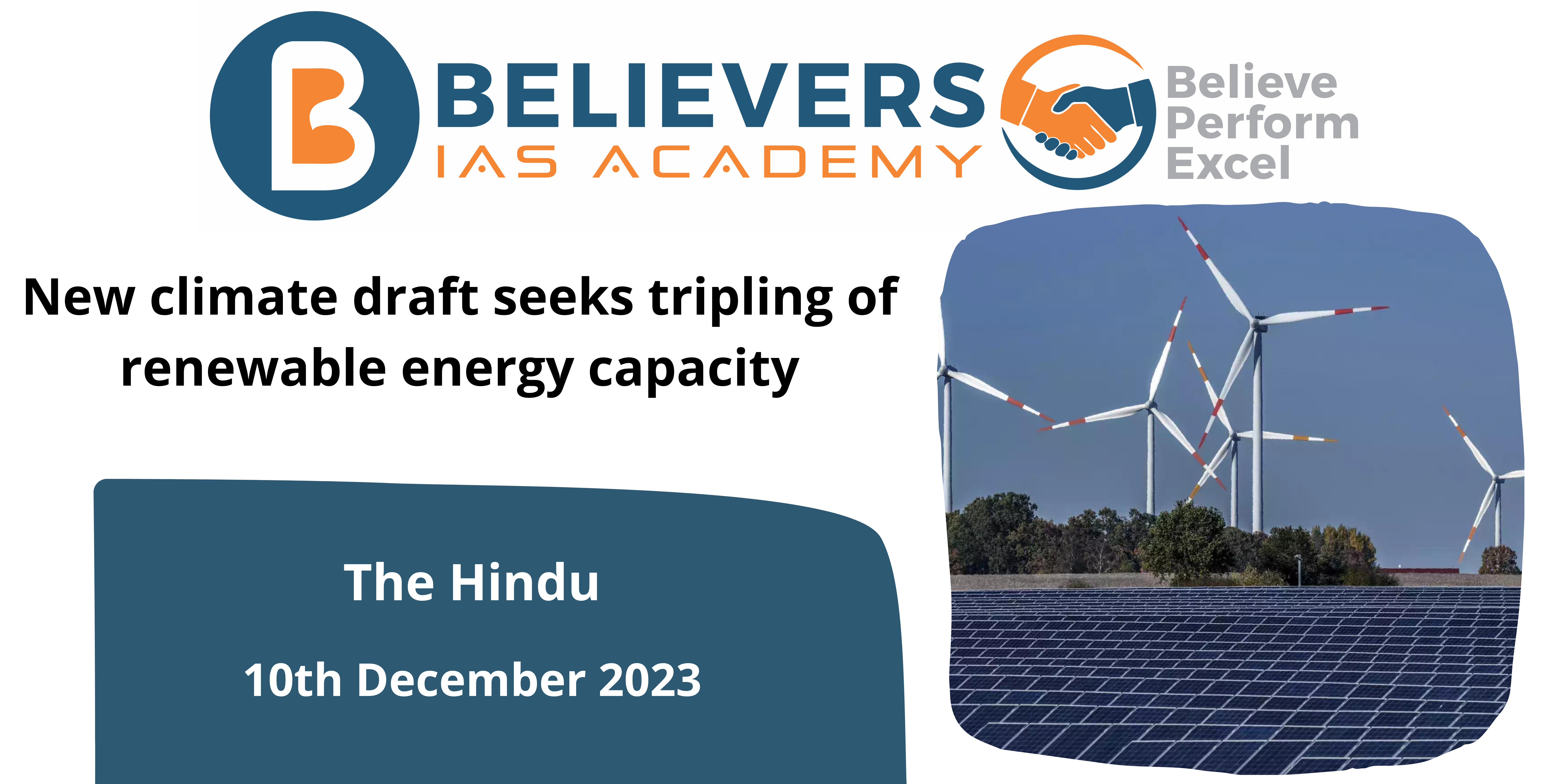New climate draft seeks tripling of renewable energy capacity
Context
The latest draft of the Global Stocktake, one of the key papers being debated at the United Nations climate meeting in Dubai, has connected tripling renewable energy capacity to a “phase-out,” or time-bound end to the use of fossil fuels.
Overview of COP 28
- The 28th United Nations Climate Change Conference is known as COP28. It will take place in Dubai, United Arab Emirates, from November 30 to December 12, 2023.
- The 28th Conference of the Parties to the United Nations Framework Convention on Climate Change is abbreviated as COP28. The fifth meeting of the COP will also serve as the Meeting of the Parties to the Paris Agreement (CMA 5).
- The conference will gather countries from all over the world together to:
- Increase your ambition.
- Implement current objectives
- Increase commitments
- A Global stocktake will also be held at the meeting to assess progress toward the Paris Agreement’s aim of limiting global warming to 1.5 degrees Celsius.
What is the Global Stocktake?
- The Global Stocktake (GST) is an assessment of the world’s climate action progress.
- It is based on the Paris Agreement’s Article 14.
- The GST’s mission is to assist countries and stakeholders in determining where they stand concerning the Paris Agreement’s goals.
- The GST also aids in the identification of gaps and possibilities for achieving the Paris Agreement.
- The most recent draft of the Global Stocktake at COP-28 links tripling renewable energy capacity to phasing out fossil fuels.
- The document proposes tripling global renewable energy capacity by 2030 to considerably reduce reliance on nonrenewable and high-emission energy sources.
What is India’s Position in this situation?
- According to reports, India is unlikely to agree to a clause that puts a time-bound end to fossil fuel use because it is too prescriptive.
- While India supports tripling renewable energy capacity, it opposes stringent conditions.
What are the changes made in the draft?
- The draft has eliminated the clause calling for a “just and orderly phase-out of fossil fuel” and replaced it with four options that focus on achieving specific temperature targets and a fossil fuel-free energy sector by mid-century.
Concerns About Climate Finance:
- India has expressed worry about the lack of terminology and clarity in climate funding negotiations.
- The necessity for a precise definition of climate finance is emphasized to promote confidence and transparency while tackling concerns linked to renewable energy transition and climate change adaptation.
Climate Finance Defined Differently:
- The Organization for Economic Cooperation and Development (OECD) and Oxfam give disparate projections of climate finance in 2020, emphasizing the importance of a shared understanding.
Conclusion
In conclusion, the talks will focus on setting ambitious renewable energy objectives, phasing out fossil fuels, and addressing issues over climate finance terminology, with India expressing misgivings about some parts of the draft accord.




